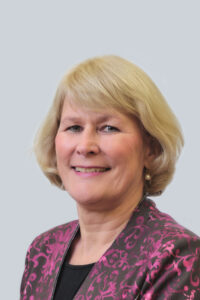“EULAR is fully aware of the gender inequality in academic rheumatology,” says Julia Rautenstrauch, MD, executive director of EULAR in Kilchberg, Zurich, Switzerland. “The gender differences are not restricted to the maldistribution of prizes but also visible in the under-representation of women in senior academic roles. Furthermore, we identified gender differences across the whole spectrum of career advancement.”
Dr. Rautenstrauch explained that EULAR funded a task force in 2020 to specifically address this problem by obtaining evidence on the potential unmet need for support of female rheumatologists, health professionals and scientists in academic rheumatology. The EULAR study by Ovseiko et al. was published in August 2022.3

Dr. Rautenstrauch
Data from EULAR scientific member societies in 13 countries suggested there were fewer women in academic than in clinical rheumatology and that women were under-represented in senior academic roles. From the 324 responses of EULAR and Emerging EULAR Network (EMEUNET) members, which includes 24 countries, no gender differences were found in “leadership aspirations, self-efficacy in career advancement and work–life integration as well as the share of time spent on research,” according to the authors. However, gender differences were reported in working hours and the levels of perceived gender discrimination and sexual harassment. Moreover, gender differences were reported in the ranking of seven of 26 factors impacting career advancement and of eight of 24 potential interventions to assist career advancement.
ACR/EULAR Strategies
“The first step was the collection of data,” Dr. Rautenstrauch says. “The second step is to develop a framework for potential interventions to accelerate gender-equality career advancement in academic rheumatology through EULAR. This framework is part of our ongoing 2024 to 2028 EULAR strategy development process. Gender equality and the facilitation of the necessary interventions to aid career advancement will be included as a primary concern. Although we are aware that a perfect balance of representation cannot always be achieved, gender equality is a systematic aspect of the current EULAR governance structure. Our committees/task forces/working groups must ensure gender equality and diversity.”
The ACR has embraced several strategies in support of its diversity, equality and inclusion efforts, such as “developing the ACR 2022 to 2027 Strategic Plan with diversity, equality and inclusion as an overall foundation of our culture, and inclusion as one of our core values,” says Ms. Brehm.
The ACR has also named Michele Andwele to serve as director of diversity, equality and inclusion, a position that is “dedicated to shaping and sustaining efforts that advance a diverse, equitable and inclusive culture across all of the ACR’s membership and programmatic activities. This staff lead will be working closely with the Executive Committee and board of directors to develop specific strategies for 2023 and beyond,” says Ms. Brehm.



